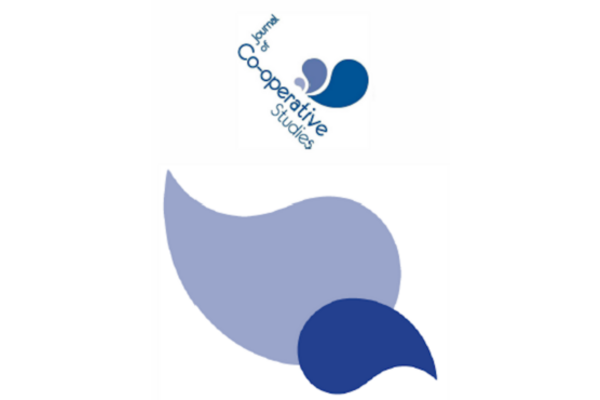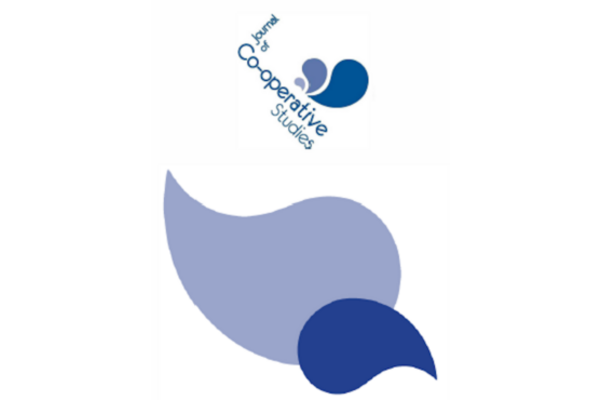Table of Contents
Guest Editorial - Co-operative education and research
Amanda Benson, Cilla Ross, & Sarah Alldred, pp. 3-5
Peer reviewed papers
Learning In, From and For Co-operative Life in Rural Malta: Two Case Studies
Mario Cardona, pp.5-16
This research explores three guiding questions. What do people learn in the co-operative, as they get involved in setting up and running a community-owned enterprise? What do people learn from the co‑operative, as they interact with it in its day-to-day business? What do people learn for the co-operative, as they turn towards co-operation to create a more equitable world? The case study research is based on two Maltese rural co-operatives, Mġarr Farmers’ Co-operative Society and Koperattiva Rurali Manikata. Ten one-to-one interviews and a group discussion were carried out in each co‑operative. Transcripts were analysed by making reference to authors who have contributed to the discussion around democracy, critical citizenship and critical pedagogy. The case studies show that in co-operatives people learn how to turn personal problems into collective struggles, develop personal and collective identities, and assume responsibility in contributing towards the common good. People also learn from co-operatives, through non-formal educational activities and by interacting with co-operatives as customers. Civil society and people in power learn from the co-operatives as the latter build alliances to achieve their objectives. People learned for co-operatives, claiming spaces where individual abilities are turned into collective strength, scaling up the struggle for social justice.
Making the Co-operative School a Challenge Alternative: Social ReproductionTheory Revisited
David I. Backer, pp. 17-27
While co-operative schools are different, there are different kinds of different schools. This essay examines the type of alternative co-operative schools are, using distinctions Philip A. Woods draws from Maori philosophy of education. While some may believe that co-operative schools are a challenge alternative — rather than a choice or assimilation alternative — because they promote co-operative values, I disagree. Given the structural link between schools and economy, the way we should determine whether co-operative schools are a challenge alternative to dominant mainstream schooling is by looking to the size and strength of the co-operative economy. Using the educational genesis of the Mondragon co-operatives as a paradigm case, and social reproduction theory as a lens, it is clear that the purpose of co-operative schools was and is to strengthen the co-operative economy. The co-operative economy right now is drastically smaller and weaker than the capitalist economy in England, and the number of co-operative schools emerging does not mean they are emerging as a challenge alternative to dominant schooling.
Small is Beautiful? Exploring the Challenges Faced by Trade Union Supported Credit Unions
Anita Mangan and Steve French, pp. 28-39
The consequences of the financial crisis and successive UK governments’ austerity programmes include the growth of precarious employment, in-work poverty, and financial exclusion. Credit unions have been identified as a solution to the problem of accessible and affordable credit and increasingly trade unions have adopted policies to support their development. This paper explores the structure, regulation, and competence of credit unions and also examines the problems trade unions face in promoting credit unions to their membership. Based upon exploratory research into three distinctive types of credit union, it is argued there are significant barriers to providing accessible and affordable credit, reflecting the small scale and limited resources of credit unions. Trade unions’ relationships with credit unions also need consideration, since differences in union strategies, structures, and membership composition affect the demand for credit union services and the scope for trade union involvement. A final question raised by the research is the extent to which trade unions are capable of operating credit unions, particularly in relation to conducting enforcement actions against members over non-payment. It is proposed that further research into credit unions and their relationship with trade unions is required, if substantive steps toward financial inclusion are to be achieved.
Think Pieces
Chris Dankwa, pp. 40-42
This thought piece brings together fragments of philosophy of science, moral philosophy/ethics, and critical theory in an attempt to elucidate the fundamental work that researchers, interested in the reputational integrity of co-operative/mutuals, ought to do.
The Development of a Women’s Economy in North Syria
Jo Taylor,pp. 43-46
For just over one year, Jo Taylor has been working on the Cooperative Economy in Rojava and Bakur research project, analysing and translating reports relating to the emerging co-operative economy in the predominantly Kurdish regions of north Syria and east Turkey — known to their Kurdish populations as West and North Kurdistan, respectively. This emerging economy is part of a wider social and political shift towards a new democratic model of self-governance, a democracy without a state, from which the world has much to learn
Home Care — A Systems Thinking Alternative
Mandy Tilston-Viney and Adrian Roper, pp. 47-50
Home Care is a system in crisis. Vanguard Method Systems Thinking offers an alternative to Time and Task based commissioning. In this short article, the authors describe Cartrefi Cymru Co-operative’s exploration into the failings of the current system and their efforts to transform service delivery through a co-productive approach based upon what matters to each person receiving support.
Adrian Roper, pp. 51-54
Cartrefi Cymru Co-operative is a Welsh provider of social care that decided, after 27 years as a traditional charity, to become a multistakeholder co-operative. The paper provides some background history and then sets out the main reasons why the organisation decided to change. It also outlines some of the innovative features of its new identity as both a care providing and community building co‑operative, and offers brief perspectives on Welsh and English social care law, and where co‑operative care might sit in relation to market and non-market approaches to public services delivery.
Book Reviews
Reviewed by John Maddocks, pp. 55-56

All works are licensed under a Creative Commons Attribution-NonCommercial 4.0 International License, subject to a 6-month embargo from date of publication in the Journal.










